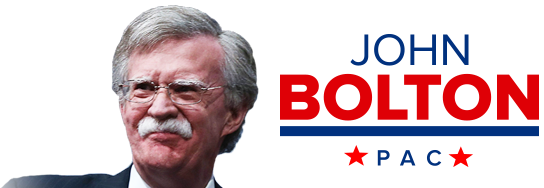Friday’s Alaska summit between Donald Trump and Vladimir Putin is not shaping up well for Ukraine. Every indication is that Trump believes he and his (once again) good friend Putin will conjure some land swaps and bring peace.
Of course, the land in question will be bits and pieces of Ukraine’s territory, not Russia’s, with Moscow probably ending this war controlling 20 per cent of Ukraine. If anyone needed proof that Trump acts in international affairs not like a strategist but like a free electron, this past week settles the matter.
Before the Alaska summit even begins, Putin has scored a major propaganda victory. An international pariah, leading a rogue state guilty of unprovoked aggression against its neighbour, is landing on American soil for pictures standing next to the president of the United States.
Trump has tariffed the entire world for the privilege of doing business in America, but asked and received exactly nothing from Putin. Inviting him to Alaska is not quite as offensive as inviting the Taliban to Camp David in 2019 to discuss the Afghanistan war, but it comes close. Most ironically, Alaska is former Russian America, purchased (thank God) by Washington in 1867, which some Russian ideologues wish to reclaim.
Putin almost certainly concluded from Trump’s recent pro-Ukrainian behaviour, such as allowing Patriot air-defence systems to be transferred indirectly to Kyiv, that he had pushed his “friendship” with Trump too far. With the August 8 deadline to have a Ukraine-Russia ceasefire looming, Putin was doubtless considering how to repair the damage and reel Trump back into line when Trump’s envoy-for-everything Steve Witkoff sought a Moscow meeting. We don’t know when Putin decided to propose a US-Russia summit, but that idea was certainly conveyed to Witkoff to bring back to Trump.
As before, Putin clearly hopes to work his KGB training on Trump, making the president his unwitting tool. Perhaps, Putin reasoned, he might even avoid pain for missing the August 8 deadline. He knew the lure of being the centre of massive press attention is a fatal attraction for Trump, who was almost instantaneously ready for a summit. Indeed, just before announcing that August 15 was the time and Alaska the place, Trump said he wished the summit could have been earlier.
Putin not only got his meeting, but TACO (“Trump always chickens out”) worked again; August 8 came and went with no new tariffs or sanctions imposed on Moscow, or China, the largest purchaser of Russian oil and gas. Only India was left in the lurch, facing a doubling of its Trump tariff rate to 50 per cent for purchasing Russian hydrocarbons.
The Alaska summit recalls Helsinki in 2018, when Trump sided with Putin’s denial of Russian interference in the 2016 presidential campaign, contrary to what America’s intelligence community concluded. Putin is doubtless looking for something analogous. Moscow has already achieved another success by ensuring that no pesky Europeans, especially Ukrainians, would be invited to Alaska, reminiscent of the Trump-Zelensky meeting at Pope Benedict’s funeral, where Trump all but pushed French President Macron out of the picture. While Trump simply enjoys getting more attention, the one-on-one format provides exactly the kind of playing field Putin needs.
Moreover, the Alaska meeting afforded Russia a first-mover advantage, which it seized immediately. Within 48 hours of Witkoff’s Moscow trip, the two sides built on earlier outlines of what Russia would deem an acceptable solution. Press reports indicated that Russia’s terms, which seemed acceptable to Trump, resembled vice presidential candidate J D Vance’s proposal in September, 2024: Russia would essentially keep Ukrainian lands it had conquered; an undefined peacekeeping force would police the current front lines; and Ukraine would be barred from joining Nato. As observers noted, Vance’s plan looked like Russia’s.
Seemingly, therefore, Trump and Putin are preparing to present Zelensky with a fait accompli after meeting in Alaska. Trump said on Friday that Zelensky would have to remove Ukraine’s constitutional prohibitions against ceding territory to another country, which is exactly what Trump is expecting to come. Thus, even before the summit, Putin exploited his first-mover advantage by bringing Trump back to his side.
With this disturbing prospect now explicit, Zelensky, in his first public response to news of the Alaska summit, rejected any surrender of Ukrainian lands. Zelensky’s response is fully justified and hardly surprising, but it plays into Putin’s hands: Russia, he will say, took the lead in seeking peace, and Ukraine is the obstructionist. While we are not yet back to the disastrous February 28 Oval Office encounter between Zelensky and Trump, Putin would obviously like to reprise Trump telling Zelensky “you don’t have the cards right now”.
As of today, Putin again has diplomatic momentum, and Zelensky is on the defensive. Time for the UK and Europe’s other Ukraine supporters to step in before it’s too late.
This article was first published in the Daily Telegraph on August 11, 2025. Click here to read the original article.


